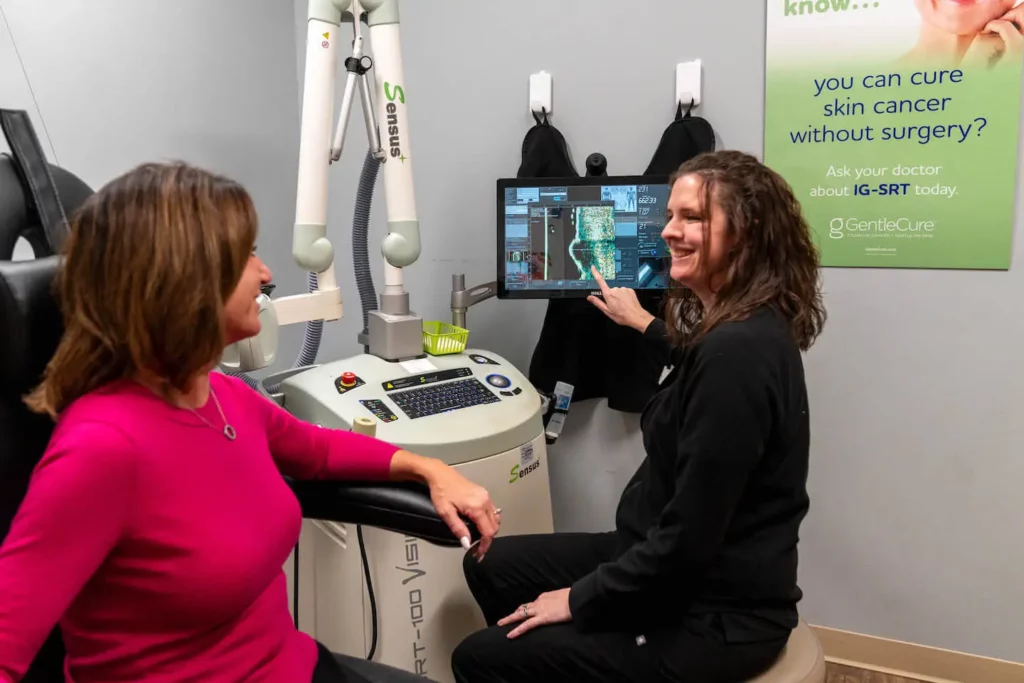Image-Guided SRT
June 5, 2024
Image-Guided Superficial Radiation Therapy [IG-SRT] is one of the skin cancer treatments offered at our clinic. IG-SRT is a nonsurgical, superficial treatment that uses low levers of X-ray energy to kill cancer cells and allows healthy tissue to grow back in its place. The treatment only penetrates a few millimeters into the skin and has little to no effect on normal tissue. IG-SRT offers a 99.3% cure rate while avoiding the downtime, side effects, and cosmetic issues sometimes associated with surgery.

A Step-by-Step for IG-SRT:
- A sample is taken from a suspected skin lesion in our clinic.
- A member of our clinical staff will contact you with the results from the biopsy. This can take up to two weeks. Treatment options will be discussed via phone to determine which treatment option is best for you.
- If you are considering IG-SRT as a treatment option, or if you decide IG-SRT is the best option for you, our billing team will work with your insurance to identify the estimated cost of the treatment. Your verification of benefits [VOB] is based on your specific health insurance plan.
- Once the VOB is complete, a member of our billing staff will contact you with the estimated cost and arrange any payment plans, if needed. If you decide to proceed with IG-SRT, our Board-Certified Radiation Therapist will contact you to contact your simulation appointment.
- The simulation appointment is the first, and longest, visit of the IG-SRT treatment. In this visit, your provider will verify the area being treated. Your radiation therapist will use an ultrasound to determine the size of the area needing treatment. Based on the initial ultrasound your
Radiation Therapist will arrange your treatment plan. They will also be able to answer any last-minute questions and concerns you might have. - All IG-SRT treatments are completed in our Portage office, by our Board-Certified Radiation Therapist, under the supervision of your dermatologist. Typically, there are approximately 20 treatments, with three to four treatments a week. Generally, 10 to 15 minutes are spent in office for each treatment. The actual IG-SRT treatment takes a very small portion of that time, about 30 seconds to a little over a minute. At every visit your Radiation Therapist will acquire and review your ultrasound with you so you can see the progress of your treatment. Your dermatologist will visit with you every five treatments to review your case with you and ensure you are making progress.
- About four to six weeks after the completion of your treatment you will have an appointment with your Radiation Therapist and your dermatologist to re-evaluate and identify the success of the treatment. In some instances, a boost treatment may be necessary to fully resolve the skin cancer.
- A boost is an additional dose of treatment given over a few visits. Although uncommon, the follow up ultrasound may show a possible persisting skin cancer, which would warrant the need for a boost.